He has long been engaged in the research on basic theory and applied technology in motor design, drive and control. Because of his contributions to the basic theory and application technology of magnetic field modulated motors, he was invited to make keynote reports at top international conferences in the field of motors such as International Conference of Electric Machines and Systems (ICEMS 2021), International Electric Machines and Drives Conference (IEMDC 2021) and International Electrical and Energy Conference (CIEEC 2022), etc for nearly 20 times, and was elected IEEE Fellow in 2018 for his contributions in this field.
He is one of the 2019-2021 Distinguished Lecturers and 2019 Distinguished Members of IEEE Industry Applications Society. He is Qu Ronghai, a professor and supervisor of Ph.D. of engineering of Huazhong University of Science and Technology, and a national high-level talent.
Solid academic foundation
Qu Ronghai is an IEEE Fellow, member of China Electrotechnical Society, professor and supervisor of Ph.D. of engineering of Huazhong University of Science and Technology, member of the University Degree Assessment Committee, deputy director of the State Key Laboratory of Strong Electromagnetic Engineering and New Technology, director of the National and Local Joint Engineering Research Center for New Motor Technology, vice chairman of the Expert Committee of the Center, director of the Joint Technology Center of Advanced Aero-Engine Motor Systems, and director of the Innovative Motor Technology Research Center.
He is the chairman of Wuhan Branch of IEEE Industry Applications Association, board member of the International Conference of Electrical Machinery (the only Chinese member of the board), chairman of the Committee of Magnetic Field Modulated Motors of the China Electrotechnical Society, member of the Committee of Permanent Magnet Motors, member of the National Technical Committee of Micro-motor Standardization, director of the branch committee of micro-motor of China Electrical Equipment Industry Association, member of the innovation team in key areas of the innovative talent promotion plan of the Ministry of Science and Technology, and one of the 100 leading talents of patents and inventions in Hubei Province, one of the Society 2019-2021 Outstanding Lecturers of IEEE Industry Applications Society, one of the winners of 2019 Outstanding Member Awards, editorial board member of IEEE Journal of Industry Applications, Journal of Magnetism, and Journal of Applied Superconductivity, member of the steering committee of international conferences such as ICEMS 2019, chairman of subcommittees of international conference such as Intermag 2017, and chairman of international conferences such as China-Korea Joint Symposium on Wind Energy Grid-Adaptive Technology 2016, First Joint Technical Workshop of the IEEE Wuhan Section and CIEEC 2021.
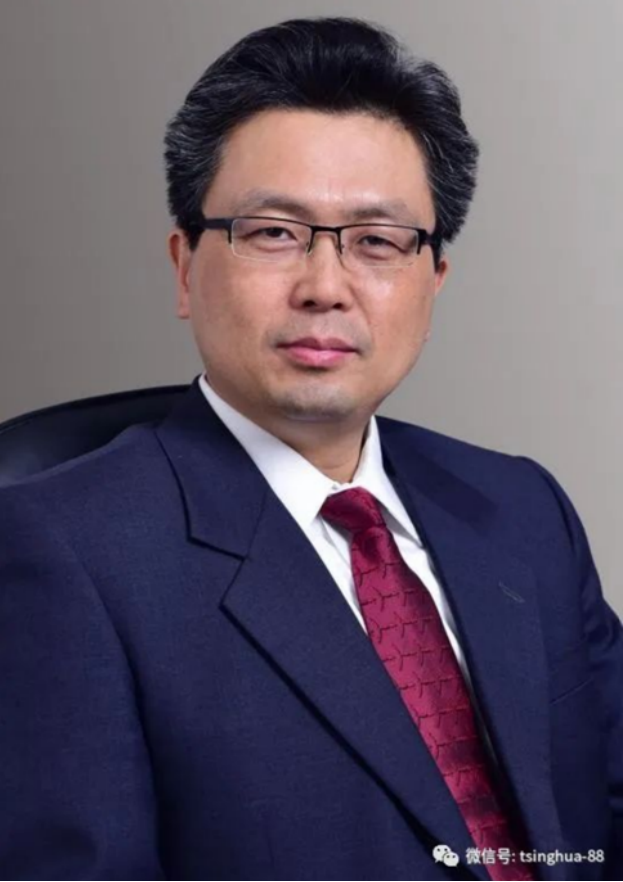
In 1993 and 1996, he received a bachelor's degree and a master's degree in electrical engineering from Tsinghua University. In 2002, he received a doctorate degree in electrical engineering from the University of Wisconsin-Madison. He has long been engaged in the basic theory and applied research on motor design, drive and control systems, and has been in charge of more than 40 national and provincial science and technology support programs, major scientific and technological projects, “863” key research programs, national foundation consolidation projects, and the National Natural Science Foundation projects, as well as more than 70 scientific research cooperation projects with many companies on high-performance motors and drive systems. His projects have won the Innovation Achievement Award of China Industry-University-Research Cooperation, the First Prize of Science and Technology Progress Award of Hubei Province, the Gold Award and Special Commendation Gold Award of the 47th Geneva International Invention Exhibition, the First Prize of Technology Invention of Science and Technology Award of China Electrotechnical Society, and the academic award of the 7th Japan Nagamori Awards. He has published more than 400 SCI and EI core papers in high-level journals at home and abroad, 12 of which won the IEEE Best Paper Award and 2 are highly cited papers. He owns more than 180 invention patents.
He is mainly engaged in analysis and design of special motors, basic theory and technology of magnetic field modulation, large permanent magnet wind turbines, superconducting motors and high-power traction motor systems, etc. He has many years of experience in scientific research and product development in motor design, production, and drive control. He has invented a variety of advanced permanent magnet and superconducting motor topologies, and solved many key technical problems on permanent magnet motors. His research achievements have been applied to top-class CNC machine tools, industrial robots, wind power generation, electric vehicles, ship power, aviation propulsion, high-speed rail traction, oil and natural gas industries.
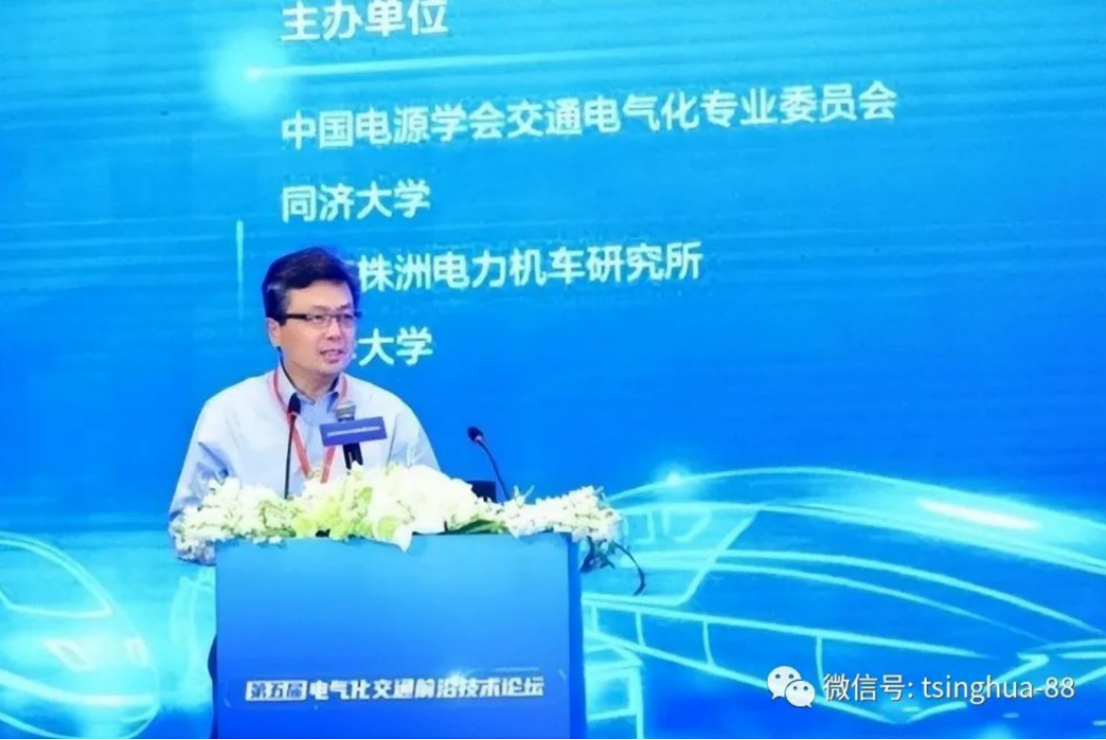
He said: "The technological revolution of energy systems represented by electrification is reshaping the global mechanical transport and energy industries. Motor systems, as the core driving force of this energy revolution, have become the commanding heights of technological competition among countries. Qu Ronghai has not only solid basic theoretical knowledge on motors but also rich practical experience on engineering and profound academic quality, he has successively served as deputy dean of the School of Electrical and Electronic Engineering, member of the degree assessment committee of Huazhong University of Science and Technology, and deputy director of the State Key Laboratory of Strong Electromagnetic Engineering and New Technology and director of the National and Local Joint Engineering Research Center of New Motor Technology, and is always very busy with work. In the field of electrical research, his insights are praised by his peers, and thus he was elected by industry scholars as chairman of Wuhan Branch of IEEE Industry Applications Society, board member of the International Conference of Electrical Machinery (ICEM), member of the China Electrotechnical Society, chairman of the Committee of Magnetic Field Modulated Motors, deputy director of the Transport Electrification Committee of China Power Supply Society, and member of the Academic Work Committee of the Electrical Engineering Society. In addition, he is very concerned about the growth of young talents, carefully “teach, help and guide” his students in the classroom and in the laboratory by precept and example, and has cultivated many outstanding young teachers and students.
He has presided over and undertaken many national and provincial major scientific research projects such as the National Science and Technology Support Program, Major Science and Technology Projects, the “863” Program, the National Foundation Consolidation Program, and the National Natural Science Foundation. He has completed 1 monograph and published more than 400 academic papers, among which 14 papers won the IEEE Best Paper Award and 3 were highly cited papers; he has more than 180 invention patents authorized. He was invited to almost all the top international conferences in the field of motors to give keynote speeches on magnetic field modulated motors, which has attracted widespread attention and great repercussions in the international academic and industrial circles of motors.
On August 24, 2022, the 16th China Forum of Inventors and the 12th Invention and Entrepreneurship Award Granting Ceremony were held in Beijing. Professor Qu Ronghai from the School of Electrical and Electronic Engineering, Huazhong University of Science and Technology won the award for his innovative scientific and technological achievements in the field of magnetic field modulated motor theory system and technology application promotion.
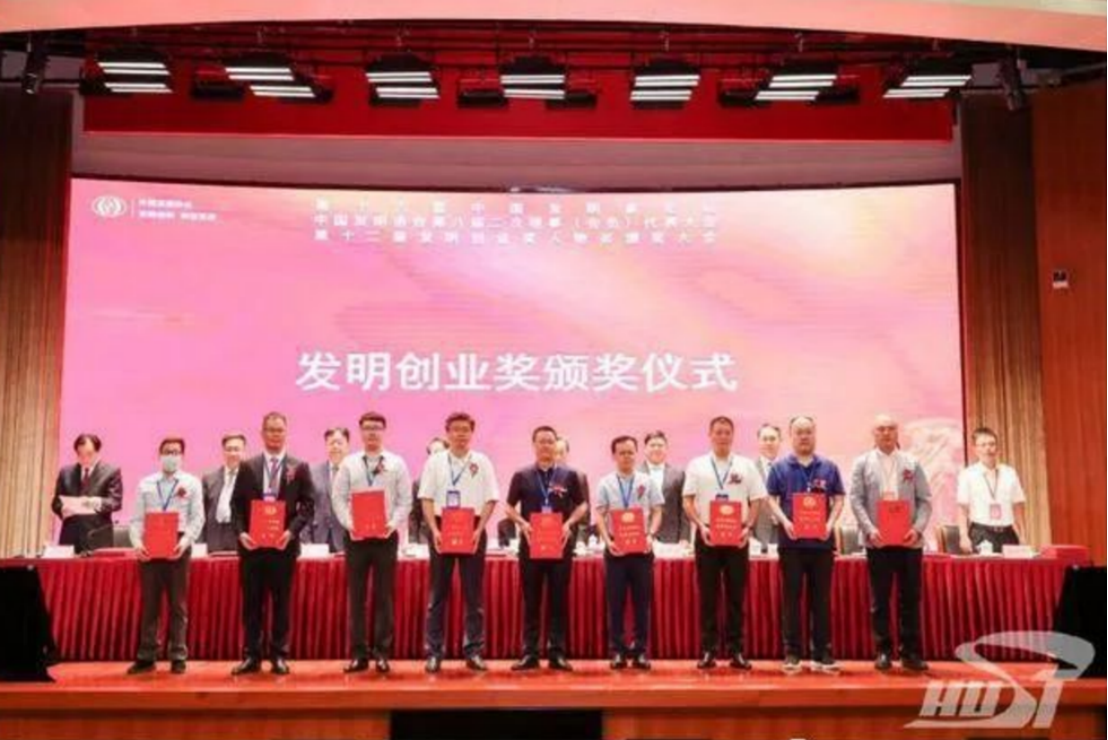
Professor Qu Ronghai (fourth from left) from the School of Electrical and Electronic Engineering won the award
The Invention and Entrepreneurship Award, established by the China Invention Association with the approval from the Ministry of Science and Technology in 2005, is the first and highest national award for inventors. Supported by the Ministry of Science and Technology, the All-China Federation of Trade Unions, the State Intellectual Property Office and other relevant organizations, the award has been widely recognized by all walks of life and become an important platform for the society to discover, cultivate and support outstanding inventors and entrepreneurs. The annual Inventors Forum and Awards Ceremony have also become a grand event for disseminating innovative ideas, enlightening invention wisdom, and encouraging invention and entrepreneurship.
Open up a new unified theory of magnetic field modulated motor
At present, with the development of advanced equipment electrification, there is an urgent demand for the improvement of the two key indicators of motor torque density and pulsation, and the improvement of torque performance is facing many challenges. The torque density of conventional permanent magnet motors is limited by traditional motor principles, cooling conditions and material properties, routine engineering means can improve the torque density of motors to a certain extent, but can hardly increase it significantly, especially in poor cooling conditions. “The stator and rotor magnetic fields of conventional permanent magnet motors have the same number of fundamental wave pole pairs and highly overlapped harmonics, while suppressing torque ripple, the average torque will be inevitably decreased, and the torque density and ripple performance cannot be improved at the same time.”
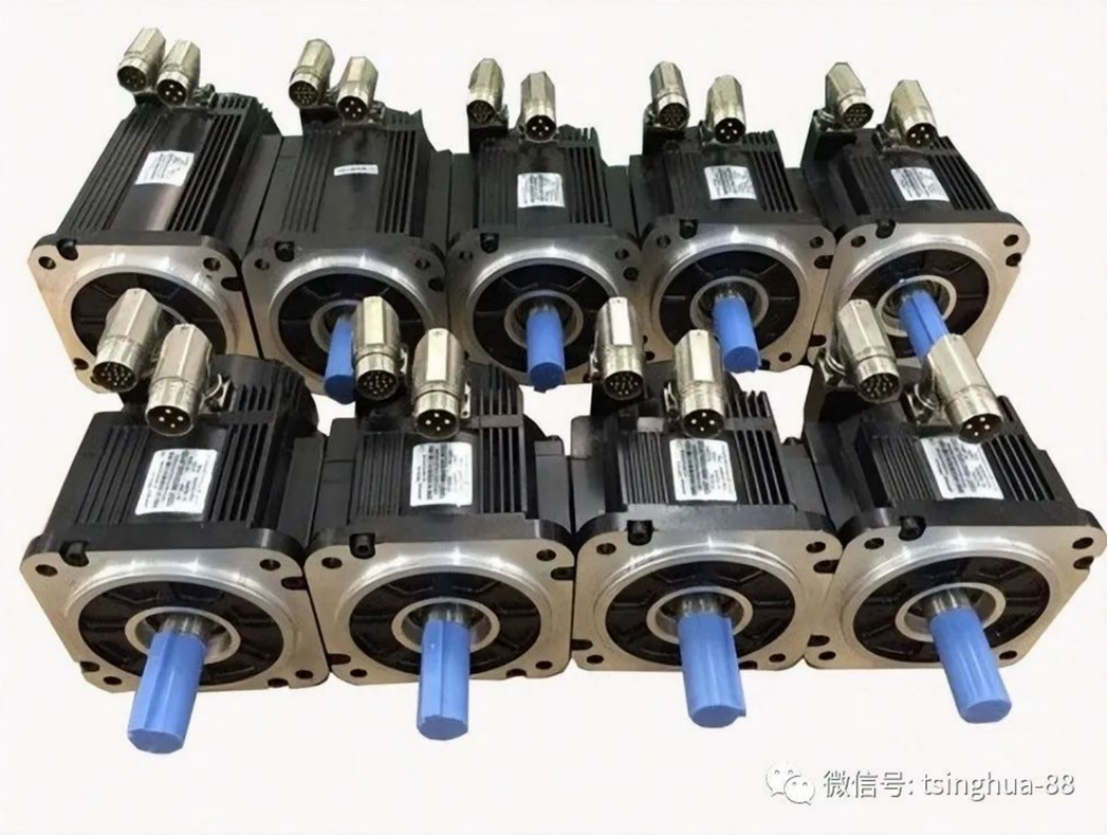
After more than ten years of research, Qu Ronghai and his team of the Innovative Motor Technology Research Center finally established the theory of motor magnetic field modulation, which truly broke the shackle that the conventional motor stator and rotor pole pairs must be equal, and created a more extensive, more systematic, new and unified theory of magnetic field modulated motors, bringing the perspectives of academia and industry into a new dimension.
He said: “This motor theory is universal, and it is another major theoretical breakthrough since the establishment of the classical motor theory.” It is worth celebrating that Qu Ronghai actively promoted the new theory applications in engineering while making a breakthrough in the magnetic field modulation theory. The “high-quality magnetic field modulated servo motor” they invented effectively solved the technical problems such as the difficulty in increasing the torque density of servo motors and the difficulty in suppressing torque fluctuations, and improved the autonomy of core components of China’s advanced equipment and the competitiveness of the whole machine. He organized and participated in the leadership of the “Foundation Consolidation Project of Industrial Transformation and Upgrading”, and developed more than 70 types of magnetic field modulated servo motor products, which fill the blank of domestic servo motors in 3C processing and high-speed drilling centers. In the “Brain Changing Project”, a major national science and technology project related to the independence of manufacturing equipment in the key and core fields of China, more than 80% of advanced digital devices have adopted the magnetic field modulated servo motor designed by him, which realized localization substitution and greatly improved the independent controllability of equipment manufacturing in key fields of China. They were successively reported by CCTV “The Pillars of a Great Power” and “Great Power of China”.
Facing the future, Qu Ronghai is as firm as a rock, and as right as a model. He said that he will always remember his original intention and forge ahead, and devote himself to contributing more wisdom and strength to enhancing the core competitiveness of the national energy industry and manufacturing industry.
Extraordinary years
Qu Ronghai entered the Department of Electrical Engineering of Tsinghua University in 1988, and it has been more than 30 years in a flash. But the excitement of coming to Beijing for the first time and entering the highest university in the country is still vivid in his memory, “I feel fresh everywhere I look.” he said.
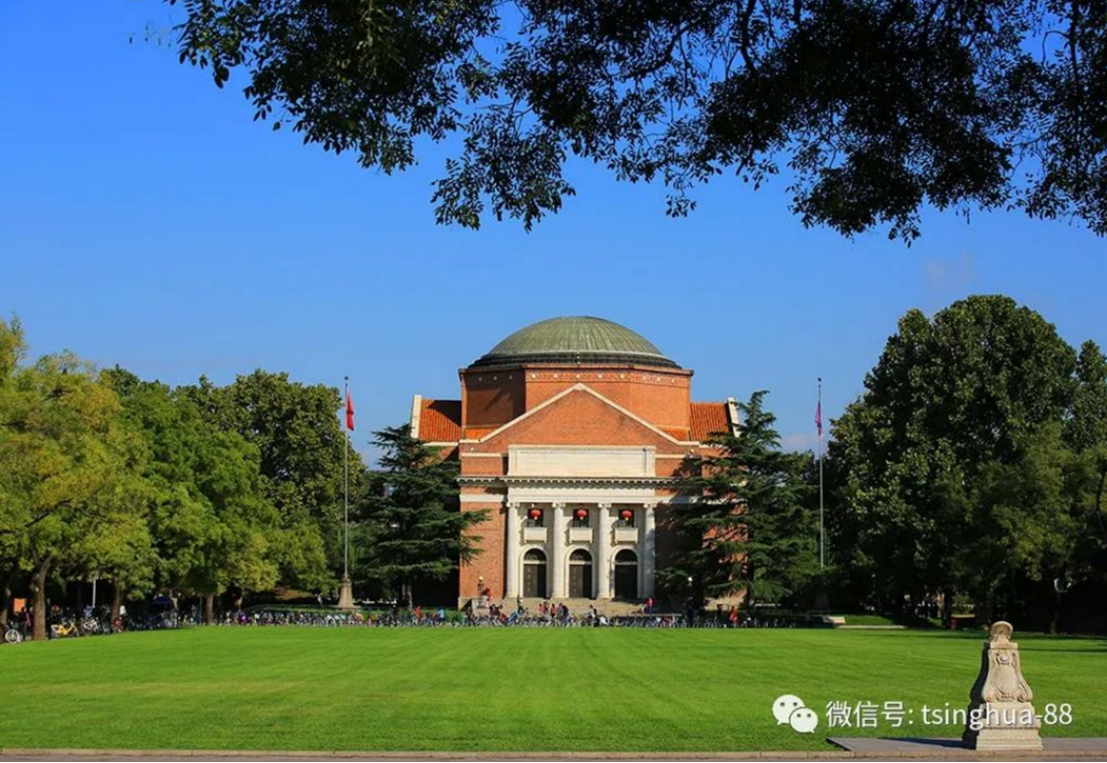
At that time, there was no Internet, no mobile communication, and it takes at least one month to send and reply a letter. “Young men now can hardly imagine our days far away from home.” Searching data in the library was difficult and inefficient, as everyone needs to look up books one by one, and life seemed a bit “primitive” comparing with present days.
But everyone’s life was more closely integrated with others’. When they first entered the university and stay in a new environment far away from home, their life revolved around the people they direct contact with. Qu Ronghai still remembers the scene when Mr. Qu Wenlong, the head teacher of the undergraduate class, took the freshmen to celebrate the Mid-Autumn Day, on the platform at the end of the fourth floor of Building 1, the sunset was still there but the full moon was rising, the 32-people class sat down and chat under the moon, and got unfamiliar to familiar with each other. Getting along with each other day after day makes students with similar life gradually get closer, and the students also got familiar with the teachers, teaching and research groups, the Department of Electrical Engineering and the whole university when they had classes.
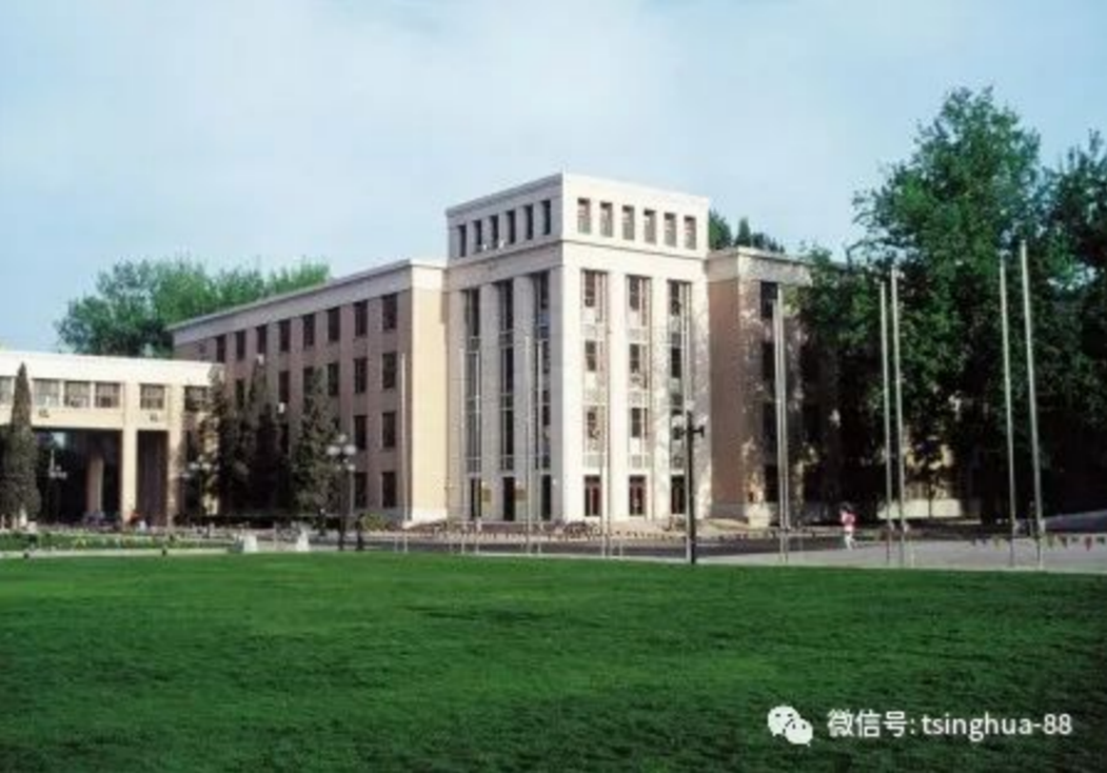
In his spare time, Qu Ronghai loves playing basketball. He and his class team have participated in the “Blue-ray Cup” basketball league of the Department of Electrical Engineering; he has also served as the captain of Tsinghua’s security team, wearing an armband and uniform to maintain order in public places. One summer vacation, someone slipped into Building 8, which was being repainted, and Qu Ronghai took two team members to search for him. “He was hiding under the bunk bed. I asked him to ‘Get out!’ and found that he had a lot of certificates and meal coupons stolen from different universities in Beijing in his pocket. The thief was a fugitive criminal wanted by Beijing police at that time.” He smiled and talked about his dramatic experience, and this “heroic deed” was later reported by the university journal “New Tsinghua”.
He has also served as a counselor for the students admitted to the Department of Electrical Engineering in 1989 and 1990. The communication with teachers and classmates gave him a deep affection for this group, and also improved his ability to deal with various affairs, which he has benefited until now.
“Tsinghua gives us enough space to develop our own advantages, including knowledge, social activities, sports and so on. The ‘universe’ of ‘university’ is fully reflected here.” Qu Ronghai said.
Not too late to come back
Qu Ronghai concluded that he has a “traditional” man who graduated from Tsinghua University, studied for a doctorate degree abroad, worked in a large company, and returned to teach in China, which is a natural career path from his point of view.
In 1988, when he filled out his volunteer application, the country was advocating the strategic goal of “striving to realize the modernization of agriculture, industry, national defense and science and technology comprehensively by the end of the 20th century”. He vaguely felt that the Department of Electrical Engineering would be definitely engaged a lot in the “Four Modernizations”, so he was determined to “integrate personal growth in the general development of the country”.
Seven years of study for undergraduate and master degrees passed by in a flash. In the spring of 1996, Qu Ronghai graduated with a master’s degree and stayed in the teaching and research group of the Department of Electrical Engineering to engage in teaching and scientific research. At the same time, he served as the leader of the student work group of the department until in 1998 he went abroad to further study in the University of Wisconsin System.
In America, he chose mathematics as a minordegree (minor degree) to meet the requirement for doctoral graduation. “In the mathematics class, I found I had learned a lot when I was an undergraduate at Tsinghua University, so I showed my past notes, learning content and exam questions to the teacher of the doctoral program. Having read them, he also thought they fully met the requirement, so he agreed to transfer my credits directly.” This made Qu Ronghai realize the advantages of Tsinghua’s teaching: “Whether in difficulty or breadth, Tsinghua provides high level learning conditions.”
Having graduated with a Ph.D. degree, Qu Ronghai fell into a short period of confusion. “If I’m allowed to work independently, I still feel that I don’t know enough about professional knowledge no matter in doing scientific research or in making products, and I don’t know where I should be.” So he chose to take a position in the R&D center of GE (General Electric) to “see what I can do”. During the years of working with experts in the international motor industry, Qu Ronghai found that he was “doing pretty well” and his self-confidence was greatly improved.
But the problem is also obvious: “No matter how well you do, you are serving a foreign company.” And this was not what he thought when he decided to go abroad. His original dream has not changed, and the words “Chinese motors” ran through every choice he makes.
In August 2010, the Organization Department of the Central Committee of the Communist Party of China introduced the talent plan in the field of wind power and extended an olive branch to Qu Ronghai. At that time, the level of China’s economic development had made a qualitative leap compared with that ten years ago. The country, local governments and colleges and universities could all provide good conditions for scientific research; however, most people chose to follow the main stream, the traditional thinking of “being balanced and not to stand out” often hindered breakthroughs in scientific research. Without hesitation, Qu Ronghai jumped into this half-opportunity and half-challenge blue ocean, joined Huazhong University of Science and Technology as a full-time teacher, and established the Innovative Motor Technology Research Center of Huazhong University of Science and Technology.
“I have exercised enough and learned almost everything I can learn, so I can go back and do something for the country.” Long years of staying abroad and long journey of coming back cannot stop him from making up mind to returning home.
A man walking often arrives
“If all the motor technologies in China can be improved a little, even by 1%, it will be a considerable benefit for the country.”
How to carry out original innovation to release infrastructure and advanced technologies from the dependence on importing is a major problem in the motor research and development of China, this problem has troubled but at the same time inspired Qu Ronghai for many years. When he was interviewed by “Science and Technology Daily” in 2012, he believed that the most important step is “optimization”, first to conquer the technical details and then to industrialize them. This great system project certainly takes time, but he believes that the accumulation of quantitative changes step by step can always achieve qualitative changes, and every inch of progress will be rewarded.
Honors have witnessed his contributions to Chinese motors. In the past ten years, Qu Ronghai has undertaken a number of major national and provincial scientific research projects, including major national science and technology projects, the “863” plan, and the National Natural Science Foundation projects of China, and has carried out scientific research cooperation projects on high-performance motors and drive systems with many state-owned and private enterprises. In 2018, Qu Ronghai was elected IEEE Fellow and became the 2019-2020 Outstanding Speaker of the Institute.
But he is not proud. “No machine can move without a motor, and there are still a lot of things to do in this industry. He is determined to do his best to build China into a powerful country in electrical machinery. For this goal that he has established since he was a young man, Qu Ronghai, as always, faced up to the difficulties and kept walking.
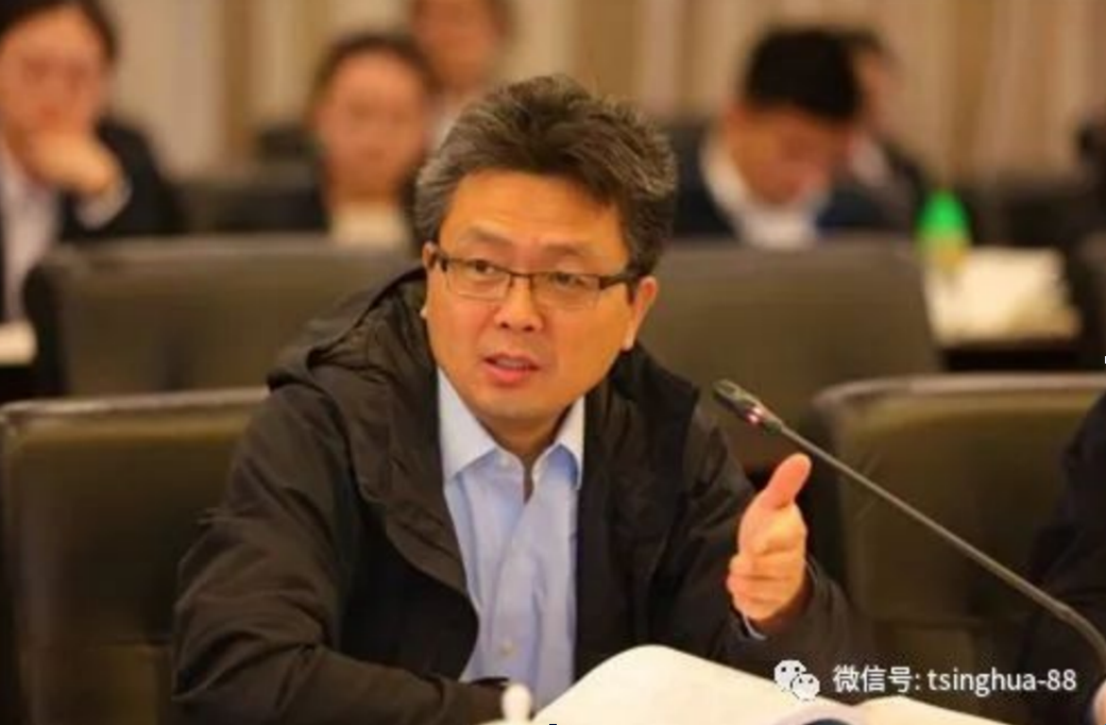
When teaching at Huazhong University of Science and Technology, Qu Ronghai found that students always showed admiration for Tsinghua University. When people from all walks of life are talking about Tsinghua University, they always think of Tsinghua’s motto “Self-discipline and Social Commitment”, so they have higher expectation for those who come out of Tsinghua than for students from other universities. “The higher the ability, the heavier the burden. If Tsinghua students want to wear the crown of ‘Tsinghua University’, they must shoulder greater responsibilities and play a greater role in key positions of the country.”
Qu Ronghai has also been paying attention to the development of the Department of Electrical Engineering of Tsinghua University, and he feels gratified and proud and about the projects completed by the department, the honors granted to teachers of the department and the achievements made by the department in recent years. He has deep feelings for this place that supported his youth, and he also put forward a heartfelt motto for its future development: “The orientation of electric machinery should be the basic position of the Department of Electrical Engineering, as Mr. Gao Jingde was a master in this field at the beginning, and my previous experience and occupation were there. Therefore, in the developing to the frontier, never forget to broaden and thicken the foundation, and build an all-round, multi-level and wide-range academic department.”
Qu Ronghai is enthusiastic about alumni work and the development of the university. On December 28, 2021, he was elected as the first president at the inaugural meeting of the Branch of Tsinghua Hubei Alumni Association in Huazhong University of Science and Technology.
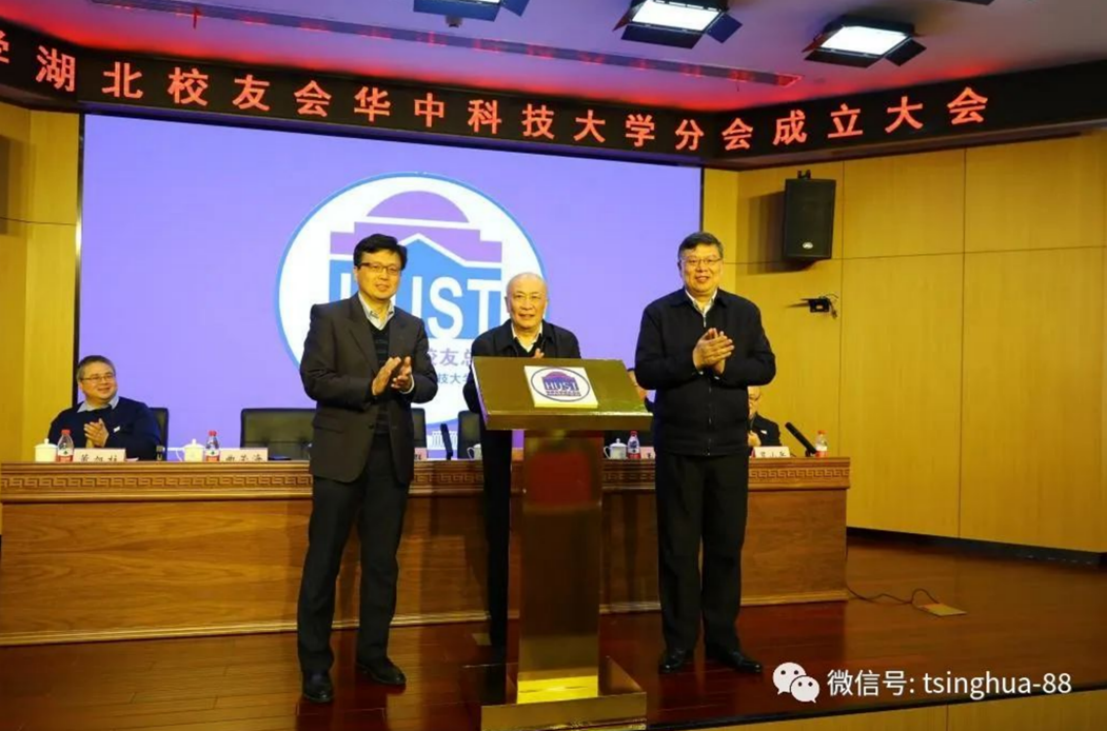
Witnessed by Academician Li Dequn and all the alumni attending the meeting, Academician You Zheng and Qu Ronghai unveiled the logo of the branch association.
Qu Ronghai, as the first president of the branch association, gave a speech and a brief introduction to the branch’s work plan. The alumni of Tsinghua University in Huazhong University of Science and Technology came from different generations, and “those with a big heart for the country” uphold the same family and country feelings. He said that he would go all out to do well in the work for the branch association, build a platform for information exchange, resource sharing and emotional connection for more than 100 Tsinghua alumni working and studying in Huazhong University of Science and Technology, and make the branch association to play an active role in gathering superior resources, consolidating the subject foundation and promoting discipline development. Inspired by the spirit of General Secretary Xi Jinping’s speech at his visit to Tsinghua University, the Tsinghua alumni in Huazhong University of Science and technology will forge ahead to support the construction of a first-class university in the heroic city Wuhan, and make greater contributions to the course of socialism with distinctive Chinese features in the new era.
This article is reproduced from WeChat account “tsinghua-88”.

















 Alumni
Alumni